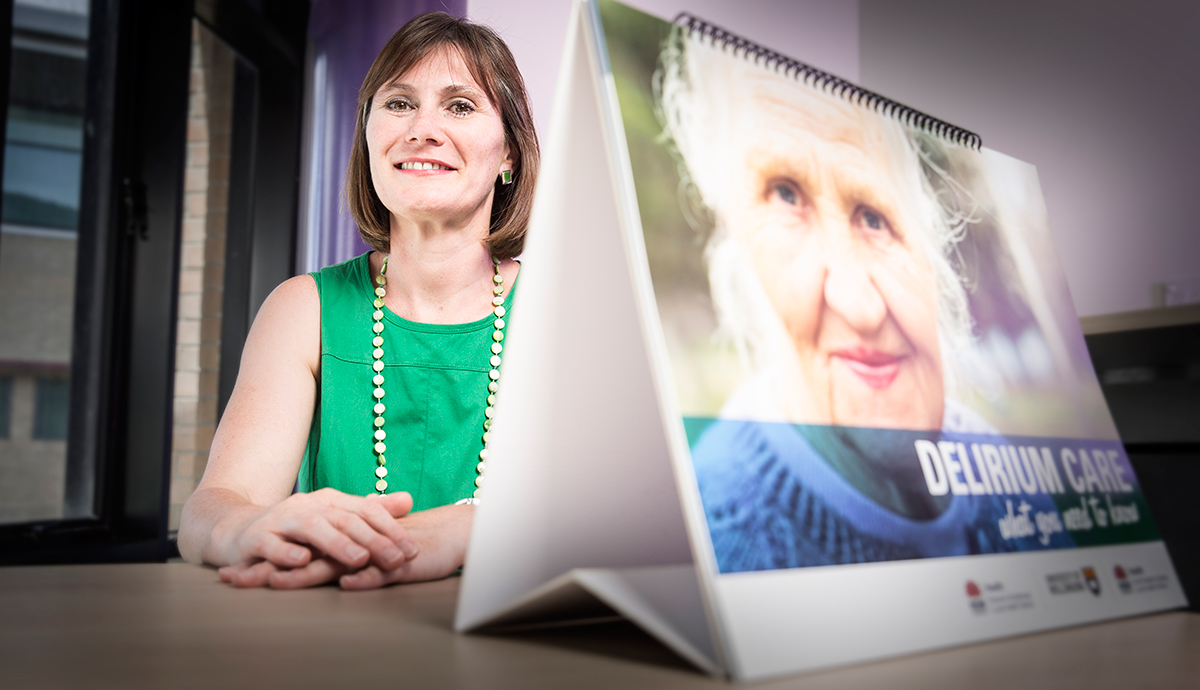November 20, 2015
Tackling delirium with innovative education program
A new program to combat delirium among older people will be trialled in two Illawarra hospitals from December.
The program, developed by UOW and the Illawarra Shoalhaven Local Health District, aims to equip nurses with the skills to better recognise and treat delirium – a condition that affects up to 50 per cent of older Australians admitted to hospital.
Delirium is an acute confusion caused by untreated infection, post-operative complication, medication side effects, dehydration or constipation. Symptoms include disorientation, agitation, hallucinations, lethargy and drowsiness, which commonly go undiagnosed or misdiagnosed as dementia or depression.
Aged care specialist Associate Professor Victoria Traynor (pictured), from UOW’s School of Nursing, said delirium in older people leads to increased rates of illness, dementia, re-location into nursing homes and mortality.
“Undiagnosed delirium is life-threatening and the importance of improving the care of older people with a delirium cannot be emphasised enough.”
The new clinical education program developed by Professor Traynor and her colleagues, with funding from the NSW Ministry of Health’s Agency for Clinical Innovation, will be trialled at aged care specialist hospitals in Bulli and Coledale.
Using clinical simulation techniques, learning is taken into the workplace with practitioners examining their current practice and roleplaying clinical scenarios to demonstrate their new competence in delirium care.
“Traditional practitioner education often relies on classroom-style learning and has a focus on awareness-raising,” Professor Traynor said.
“This type of education results in a lack of attention being paid to skill development, with practitioners finding it difficult to connect their learning to real life practice.”
Professor Traynor said she was confident the hands-on, work-based learning model would increase competencies and reduce incidence of untreated delirium in hospitals and that the next step would be adapting the program for other aged care professionals.
“Delirium is not limited to hospitals. It is a major problem for older people living in the community and residential accommodation, in particular those with dementia. The findings from this project will be expanded over time to include these care sectors.”
The resources developed from this project will be available online for use by other practitioners and researchers across the region and beyond.
UOW is also involved in an international study of anaesthetists that aims to develop new guidelines for pre and post operative care to prevent and treat delirium.
More information: Other delirium care resources available at smah.uow.edu.au/nursing/adhere/deliriumcare.
